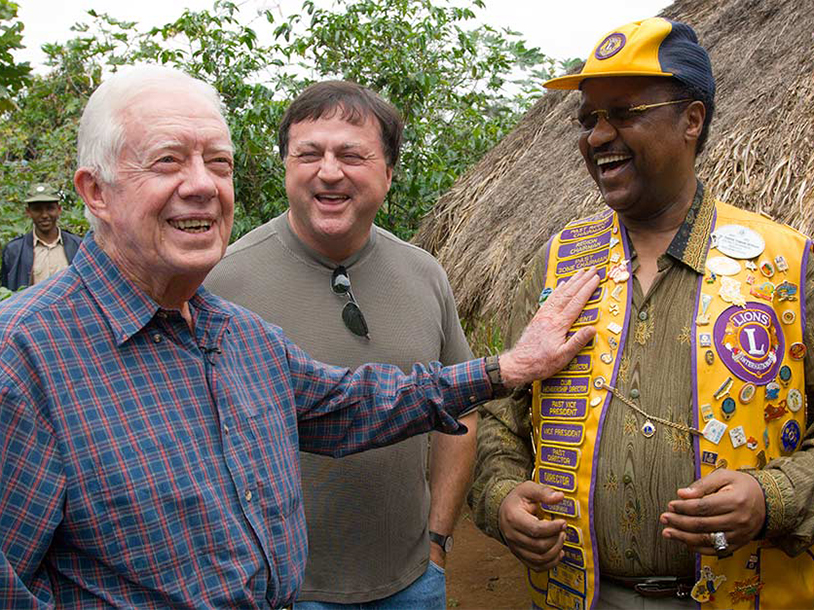The Carter Center Health and Peace Programs appreciate the continued support of our foundation, government, and corporate donors and are pleased to highlight their contributions in these regular Web features.

Featured March 2012
In advance of the November 2011 presidential and parliamentary elections in the Democratic Republic of the Congo, The Carter Center received a formal invitation from the Independent National Electoral Commission (CENI) and was welcomed by Congolese political parties to observe the elections. In August 2011, the Center's Democracy Program launched the international election observation mission, while the Center's Human Rights Program provided technical assistance to a major network of domestic election observers. With the deployment of 20 long-term international observers across all provinces in the DRC, the Center monitored the preparatory activities of the election commission, political parties, civil society organizations, and the international community.
In mid-November 2011, an expanded delegation of 37 medium-term international observers, led by former President of Zambia Rupiah Bwezani Banda and Vice President of Carter Center Peace Programs Dr. John Stremlau, deployed to polling stations in all 11 Congolese provinces and the capital of Kinshasa. The election took place on November 28, with a total of 56 Carter Center observers visiting nearly 300 polling stations across the nation. In a preliminary statement released on November 30, the Center stated that the voting process had been relatively peaceful, despite logistical and technical difficulties faced by CENI.
At the same time, the Center's Human Rights Program worked with its Congolese partner, the Commission Episcopale Justice et Paix (CEJP), to conduct two sets of cascade trainings to prepare a much larger number of Congolese observers. Forty master trainers were trained in Kinshasa and then deployed to train 300 domestic long-term observers throughout the provinces. These domestic long-term observers then trained 6,000 domestic short-term observers at the village and parish level. In addition to setting observer training methodology for all tiers of the cascade, the Center also assisted CEJP in deploying those 6,340 Congolese observers to more than 3,000 polling stations across the DRC. In collaboration with the CEJP, the Center set up and managed a data collection center at their Human Rights House in Kinshasa. This provided critical logistical and communications support for CEJP's domestic observation mission, especially the use of SMS technology to report findings.
Congolese and international observers remained deployed in the provinces to monitor the full presidential and partial legislative counting and tabulation process. As observers reported a significant number of irregularities in the counting process, the Center released a follow-up statement on December 10. The statement noted that the mismanagement of the counting process had undermined the credibility of the election. CEJP also released a series of public statements in December, presenting the findings and conclusions from their domestic observation mission. Their independent findings separately reinforced those of the Carter Center's international mission.
The international election observation mission in the DRC would not have been possible without the generous support of our partners:
Featured donor and supported programs:
Please sign up below for important news about the work of The Carter Center and special event invitations.

Browse our archive of Carter Center featured partners »